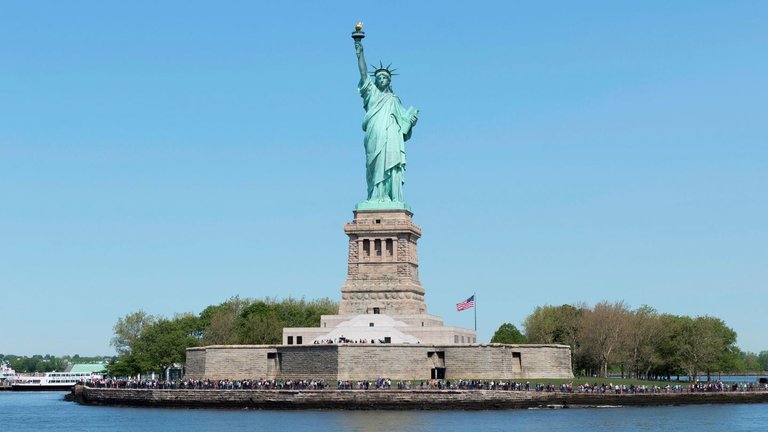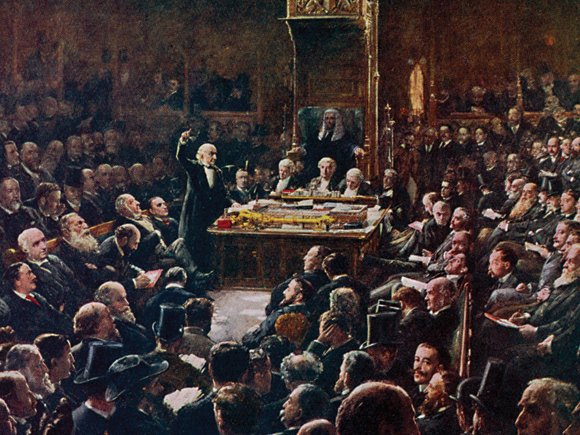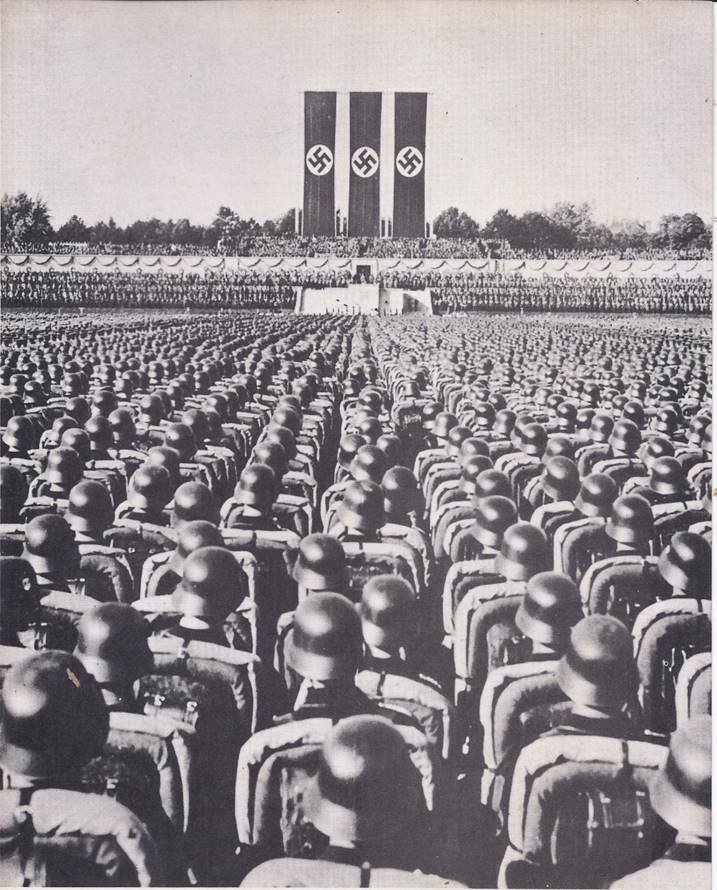
In recent years we have seen how one of conscience has been created with respect to freedom. Today we see a large number of groups mobilizing in the streets to demand and obtain recognition of their freedoms, although it is true that not all groups have a clear idea of freedom and what it means to have it, we must recognize the fact that more people are betting on this era on an ethical and abstract concept such as freedom, we see it clearly in the adoption of models such as the chain of blocks whose principles and values are based on freedom and decentralization, that is, there is no need for intermediaries to perform or carry out an action.
What is more terrifying than losing our freedom? Why do we feel freedom as something purely human? Freedom is undoubtedly associated with the ability to choose. We feel that it is associated with intelligence, with something beyond the pure impulse that comes from instinct.
Advocating for and defending freedom is a characteristic of civilized, open-minded people who are willing to sacrifice their own interests against those who choose to oppress. To be a classical liberal or a libertarian is to approach any question from an impartial and rational point of view, free from all prejudice and superstition, always putting people's freedom first in their decision-making, does not interfere with others as long as the freedom of one individual does not affect that of others.
Liberalism as a political ideology was born in England in the mid-17th century. For a period of about forty years after the civil war and the establishment of constitutional government after the revolution of 1680, a number of arguments were put forward against the power of absolute and uncontrollable monarchy, just as they opposed the monarchies also opposed the monopoly of knowledge that was controlled by the dogmas of the religion held by the established church. It was then that for the first time, the demands for truth, religious tolerance and a government with separate powers were shaped within a political perspective with ethical foundations of anarchy and freedom.
These early confrontations with the traditional power structure made England the country where liberalism originated, but what does liberalism stand for? what are its principles or postulates really? Liberalism is based on a doctrine of decentralization and freedom, based on having a limited government in which politics has a minimal role in the social and economic affairs of the community, that is, the state cannot interfere with people's decisions in any way.
From this perspective, the role of government would be to safeguard natural rights, which in their legal expression are called civil rights or freedoms. A government with broad powers or very articulate government not only interferes with people's right to run their own affairs, but is also ineffective. In economic matters, for example, people can preserve their own interests without any political support, as Tom Paine proclaimed in The Rights of Man. He also proposes the separation of government and economy, a separation sanctioned by the classical economists and above all by Adam Smith, since in his work The Wealth of Nations he called for the removal of political limitations on the acquisition of wealth.
However, there are models that seek to undermine people's freedom on the grounds that people do not have the capacity to make their own decisions. If there are any, what have not been the revolutions for freedom that have created progress and development for humanity? For example, the countries that are in the top 20 positions in the freedom indexes of the world ranking tend to be the most prosperous, happiest and fastest growing countries in the annual GDP. Although the state was created with the need to regulate and suppress some wild attitudes in the past was with the need to create progress and evolution, we are at a point today where regulation is seen as a necessity first and foremost, always with a government-sponsored excuse, we see it in cases such as Venezuela whose regulations and controls have plunged its population into the worst crisis in its history or in Turkey where the form of government has been redesigned to make way for an authoritarian system based on nepotism. And so it has always been with the history of humanity while the theoretical foundations of those authoritarian states are based on control, the alienation of goods and the inability of individuals to form a society always end up creating underdevelopment, poverty and tyranny, China, the Soviet Union and Cuba for example.
What the Socialists argue is that the liberal programme is not enough to implement the ideal they share with them. For the socialist, the human being is not evil by nature and must therefore be controlled and the instrument for this is the state, the state that violates the freedom of individuals for a "collective good", the aggressor state that steals from people for the "collective good", the state that violates private property for the "collective good", the systems with ideological foundations based on Marxism do not believe in the possibility for human beings to regulate themselves, to be free. Even when there is progress and improvement in systems in which individual freedom takes precedence over collective freedom, leftist politicians resort to the theory of Marxist class struggle, making any minority look oppressed by the system in power. And it has been like this throughout history that governments like those mentioned above have seized power. Today the same theory is still applied and even the word liberal has been alienated, which is used today by those on the left who seek to create social conflicts in the name of false and misleading freedom.
What these groups do not take into account is that the liberal ideal of freedom for men will only finally be realized when society as a whole runs the economy without the need for a state to regulate it in a way that serves the needs of each and every individual in society. On the other hand, these new groups that alienated the term "liberal" seek solutions in the state so that their "liberties" are guaranteed above the individual good of each human being, so this "pseudo-liberalism" that they preach is nothing more than an authoritarianism based on their beliefs. Examples of this is the constant struggle by third wave feminists to implement an inclusive language, punishing anyone who refuses to adopt this language.
Freedom is the flag for progress and development, freedom and truth are the most important concepts that every human being is given at birth. We come into the world without choosing it and then we must face it by deciding for ourselves what to do and what not to do. It is therefore that defending freedom is intrinsic and inherent in the human being of those who seek to impose their desires above those of others. For any solution on this earthly plane there is no better solution than freedom and only freedom.
 Posted from my blog with SteemPress : Here
Posted from my blog with SteemPress : Here 

Curated for #informationwar (by @commonlaw)
Our purpose is to encourage posts discussing Information War, Propaganda, Disinformation and other false narratives. We currently have over 8,000 Steem Power and 20+ people following the curation trail to support our mission.
Join our discord and chat with 200+ fellow Informationwar Activists.
Join our brand new reddit! and start sharing your Steemit posts directly to The_IW!
Connect with fellow Informationwar writers in our Roll Call! InformationWar - Contributing Writers/Supporters: Roll Call Pt 11
Ways you can help the @informationwar
Had this thought. What's changed, besides technology? Really what is causing people who mostly would not think about freedom to begin thinking - and even organizing?
The interesting thing is that, with unemployment going way up among most classes, people have more time to read, to listen, to converse and even create content. Especially when they try to create content, they have motivation to learn. And that's when they learn about freedom. They become aware of a lack of some freedom. And in order to be able to speak, they study a little bit first.
Whereas when most people are busy and specialized, always working, they just accept what happens, good or bad, and don't have time to think. So paradoxically, in prosperous times, prosperous because free, and everybody has something to do and is not limited artificially in doing, freedom and ideas of freedom decline. Leads to decrease of freedom. Which is correlated with prosperity. Suddenly people are not so busy. And also not as satisfied. They start thinking about freedom. ...
Good topic for a philosophical discussion. From my point of view, liberalism implies a great freedom of action and little intervention by the state. Letting go, in a liberal state, leads the same government to be a mere spectator. The freedoms are good but for me the state must let do, but always protecting the weakest (those people who are affected in their rights) when the system abuses the. Very good Blog.
Congratulations! This post has been upvoted from the communal account, @minnowsupport, by ThoughtsIN-TIME from the Minnow Support Project. It's a witness project run by aggroed, ausbitbank, teamsteem, someguy123, neoxian, followbtcnews, and netuoso. The goal is to help Steemit grow by supporting Minnows. Please find us at the Peace, Abundance, and Liberty Network (PALnet) Discord Channel. It's a completely public and open space to all members of the Steemit community who voluntarily choose to be there.
If you would like to delegate to the Minnow Support Project you can do so by clicking on the following links: 50SP, 100SP, 250SP, 500SP, 1000SP, 5000SP.
Be sure to leave at least 50SP undelegated on your account.
Pretty god. I´m libertarian.